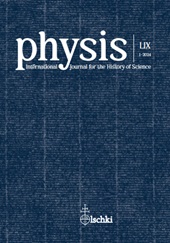Hegel : an evolutionist?
P. 85-118
The interpretation of Hegel's account of evolution remains a subject of debate: did he endorse or reject theories advocating the transformation of species? While scholars have offered differing responses to this question, many continue to express reservations about a Hegelian form of evolutionism. This article aims to demonstrate that Hegel did not simply adopt a preformist understanding of the German term Evolution; rather, he embraced a transformist theory grounded in the actions of natural forces on genera and species. In this proximity to the biological ideas of Lamarck and Treviranus, Hegel's philosophy aligns itself with Darwin, particularly in Hegel's consideration of chance as a factor of variation (what he calls Ohnmacht der Natur).
However, unlike Darwinian evolutionism, Hegel contested the notion of a gradual and linear development. Consequently, despite his acceptance of species modification, he believed that due to its ‘quantitative' nature, the evolutionary model falls short in explaining the discrete and inherently teleological progression of nature towards the Spirit. This article also illuminates Hegel's unique position within the Romantic scientific milieu, highlighting his critical stance toward the organic development models proposed by the scientists and natural philosophers of his time. [Publisher's text]
-
Articles du même numéro (disponibles individuellement)
-
Informations
Code DOI : 10.1400/297489
ISSN: 2038-6265


